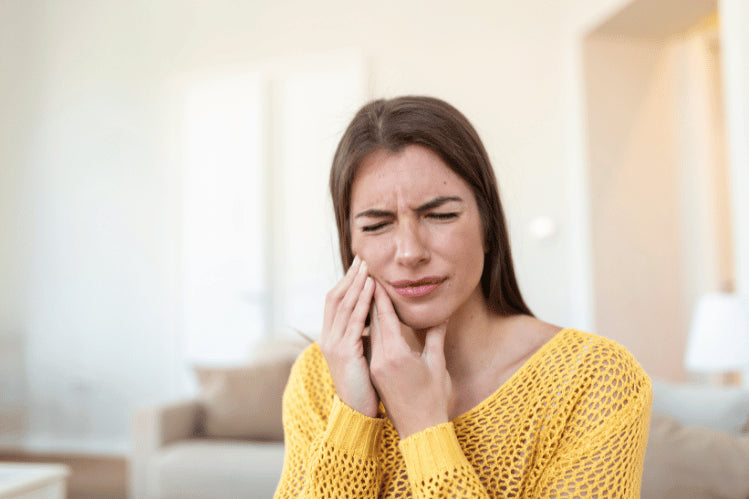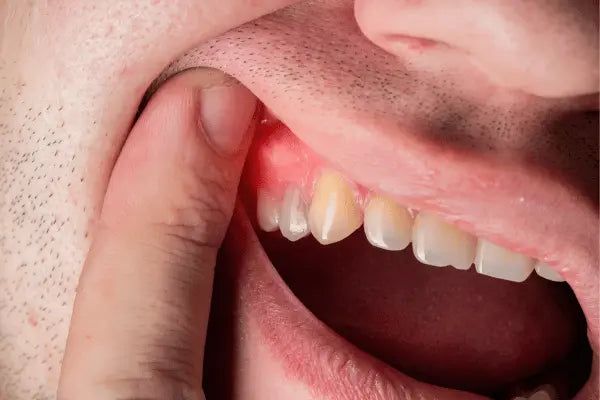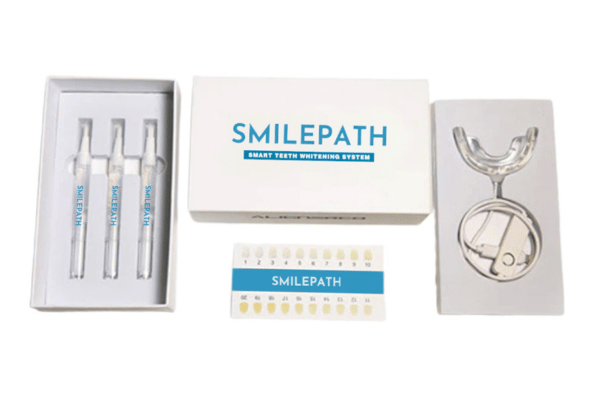
A sudden twinge, a persistent throb, or a dull ache – tooth pain can be quite distressing and can impact your daily activities. It's like a nagging reminder that something isn't quite right in your oral health department. But fear not! In this blog, we’ll uncover the seven most common causes behind those bothersome toothaches and relief tips.
1. Worn Tooth Enamel
Worn tooth enamel is one of the major reasons behind that never-ending toothache. It can be caused due to excessive intake of acidic foods and beverages, aggressive brushing, and teeth grinding. Usually, whenever the tooth enamel wears down it exposes the tender dentin beneath leaving it vulnerable to sensations like hot, cold, or touch, and even sometimes triggers sharp pain.
In order to reduce enamel erosion and subsequent tooth pain, it’s essential to use gentle brushing techniques with a soft-bristled toothbrush. Moreover, limiting the use of acidic foods and drinks in your daily diet, or at least rinsing the mouth with water afterward, can help preserve the health of the enamel.
2. Gum Recession
Gums are the part of our mouth that we often take for granted. Our gums play a pivotal role in supporting our teeth and providing a healthy foundation for their roots. Since the roots of the tooth are not covered with enamel but instead with cementum, receding gums can leave them exposed, hence causing tooth sensitivity and pain. There are many reasons behind gum recession including aggressive brushing, teeth grinding, genetics, and aging in general just to name a few.
To prevent further gum recession it’s important to incorporate a few oral health techniques into your daily life including brushing with a soft-bristled toothbrush and desensitizing toothpaste. For instant relief from the pain, doctors can apply fluoride varnish or desensitizing agents to the gums. Additionally, seeking professional treatments like gum grafting can help restore gum tissue and protect exposed tooth roots, reducing sensitivity and discomfort.
3. Periodontal Disease

Periodontal disease or gum disease, including gingivitis and periodontitis, can also be the hidden culprits behind tooth pain. Research suggests that the disease generally starts with the inflammation and infection of the gums and surrounding tissues, further leading to gum recession, bone loss, and eventually tooth loss.
This type of disease is generally the outcome of neglected oral hygiene but some people are just simply more prone to this type of infection. If you want to avoid being affected by periodontal disease, it’s important to prioritize your gum health. This includes first and foremost, taking proper care of your oral hygiene, such as regular brushing, flossing, and using antibacterial mouthwash to reduce plaque and bacteria accumulation.
Moreover, seeking professional dental care is extremely essential if you’re facing symptoms such as reddish or purplish gums, bleeding, bad breath, or soreness. Whereas periodontal disease can’t be cured completely if detected early there are various ways to counter its effects. Your dental care expert will conduct a periodontal probe and based on the findings offer you treatments such as deep dental cleaning, scaling, root planing, bone grafting, and LANAP (Laser-assisted new attachment procedure).
4. Grinding or Clenching Teeth

We all clench our teeth once in a while sometimes in anger and the other times during stressful conversations. Whereas, clenching your teeth once in a blue moon is completely normal, grinding them persistently over time can wreak havoc on dental health and trigger persistent toothache. This condition is called bruxism and it often occurs during sleep. Bruxism can cause severe tooth wear, microfractures, muscle soreness, and even damage to dental restorations like fillings or crowns.
To combat bruxism a multi-faceted approach should be implemented including lifestyle changes like stress management techniques and wearing a custom-fitted mouthguard to protect the teeth from grinding while you sleep. Additionally, orthodontic treatments like clear aligners can help correct underlying bite issues, reducing the likelihood of bruxism-related tooth pain by promoting proper tooth alignment and distribution of bite forces.
5. Cavities and Tooth Decay
Oh! cavities, our old nemesis. They are usually caused by tooth decay—a result of bacterial plaque buildup on tooth surfaces. When proper hygiene practices are not followed and the buildup is left unchecked, these bacteria produce acids that eventually erode tooth enamel and form cavities. As cavities progress, they can expose sensitive inner tooth layers, causing discomfort and pain, especially when consuming hot, cold, or sweet foods.
If you don’t want to get in trouble with cavities, it’s important to keep your oral health in check. Yes, guys, your mother was right! You can’t underestimate the significance of brushing your teeth twice a day. Integrating little steps into your daily routine like brushing with fluoride toothpaste, and flossing can help maintain optimal dental health. In cases where cavities have already developed, it’s important to see a dental specialist for interventions, such as fillings or dental sealants. These measures can halt cavity progression and in turn, reduce the associated toothaches.
6. Teeth Bleaching Products

Teeth bleaching products are widely popular and helpful when it comes to achieving a brighter smile, but they can sometimes come with unwanted side effects: tooth sensitivity and pain. Most teeth-whitening products use hydrogen peroxide and carbamide peroxide in their formulation. These whitening agents are designed to be safe for the teeth but when they come in contact with the gums they can cause gum irritation, redness, swelling, and even a burning sensation.
Whereas temporary discomfort and irritation are normal after a professional teeth whitening treatment due to the acidic nature of the bleaching agents, it's important to consult a dentist if the irritation lasts more than a few days.
If you’re using an at-home teeth whitening kit, it's essential to take precautions to avoid tooth pain. Follow the usage instructions carefully and avoid overusing or prolonged exposure to these agents. Moreover, consulting with a dentist before starting any whitening regimen can help assess potential risks and determine the most suitable approach for you to achieve a bright smile without compromising your dental health.
7. Jaw Misalignment or Malocclusions
Jaw misalignment or malocclusions, where the upper and lower teeth don't fit together properly, is one of the major contributors to tooth and jaw pain. Malocclusions can cause severe pain when biting as the constant unbalanced pressure can put too much pressure on a specific tooth and result in inflammation. This also reflects that there’s something wrong with the temporomandibular joint (TMJ). There are several factors responsible for this bite misalignment such as genetics, developmental issues, or habits like thumb-sucking.
Addressing jaw misalignment often requires orthodontic intervention such as clear aligners, metal braces, or surgical procedures in the worst-case scenario. Most malocclusions are mild to moderate and can be treated with modern and discreet clear aligner treatments.
When to See the Doctor
Some tooth sensitivity and mild discomfort shouldn’t be alarming, however, if the pain lasts for more than 2 days and doesn’t go away even after using painkillers you should see a dentist right away. These are the few signs and symptoms to look out for before you go running to the emergency room or your dentist’s office:
- Persistent toothache
- Red or swollen gums
- High temperature
- Difficulty chewing
Ignoring these warning signs can lead to worsening dental problems and potentially irreversible damage.
Takeaway
Experiencing sudden tooth pain can be caused by various factors, many of which are linked to the gradual erosion of gum tissue or tooth enamel. If you find yourself with suddenly hypersensitive teeth, it's advisable to consult your dentist. While this situation typically isn't classified as a dental emergency, it's essential to have any painful teeth evaluated by a dental professional to exclude more severe underlying causes.
FAQs
Tooth sensitivity to cold temperatures can indicate underlying issues such as enamel erosion, tooth decay, or gum recession. It's essential to consult with a dentist to determine the cause and appropriate treatment.
Stress can contribute to teeth grinding (bruxism), which can lead to tooth pain and other dental problems over time. Managing stress and seeking dental interventions like mouthguards can help alleviate associated discomfort.
Bite issues usually persist due to misaligned teeth. Clear aligners gradually shift the teeth into proper alignment, restoring harmony to your bite.
Tooth sensitivity after a whitening procedure can last anywhere from a few hours, to days or weeks, depending on your unique case.
While home remedies like over-the-counter pain relievers or numbing gels may provide temporary relief, it's essential to address the underlying cause of tooth pain through professional dental evaluation and treatment for long-term relief.



 Australia
Australia New Zealand
New Zealand Malaysia
Malaysia English
English Portuguese
Portuguese English
English English
English English
English English
English English
English Canada
Canada